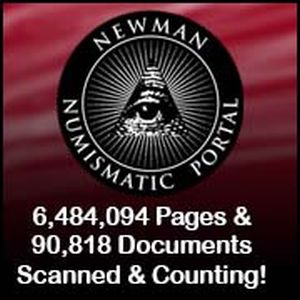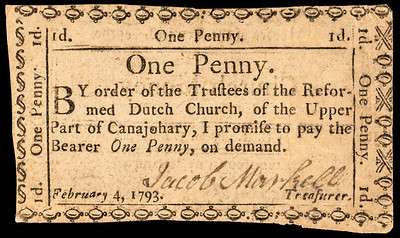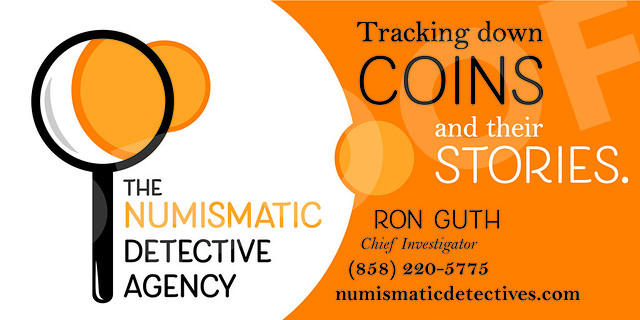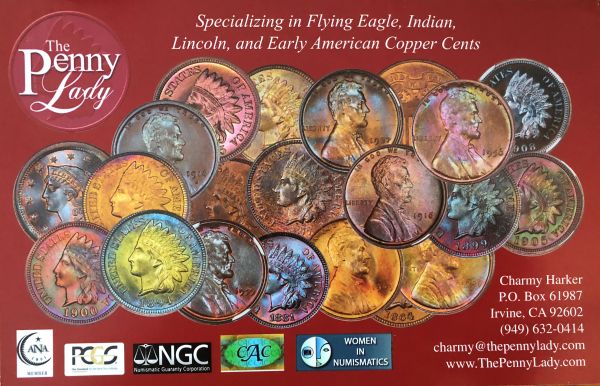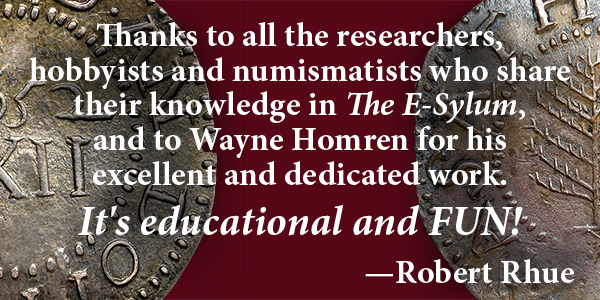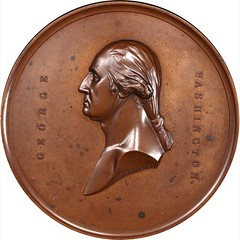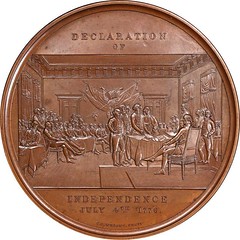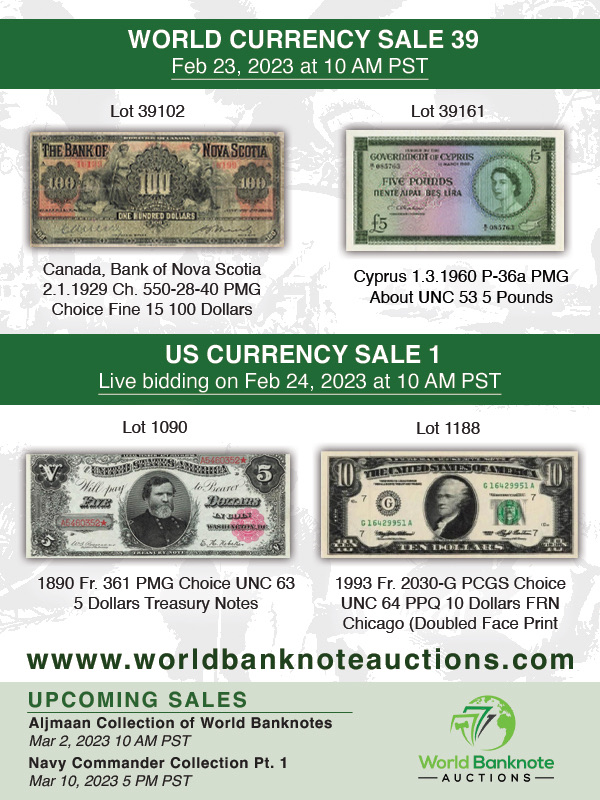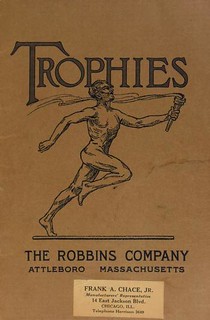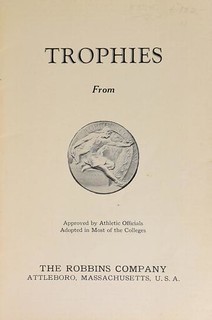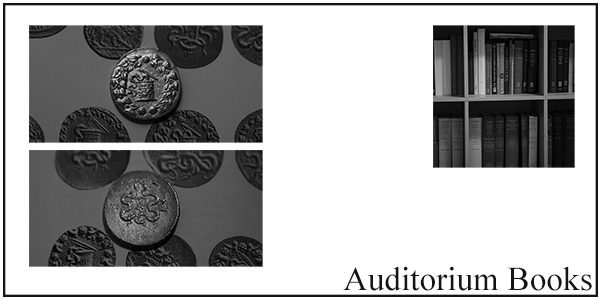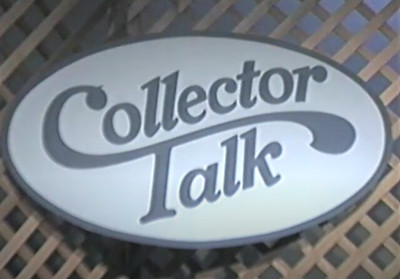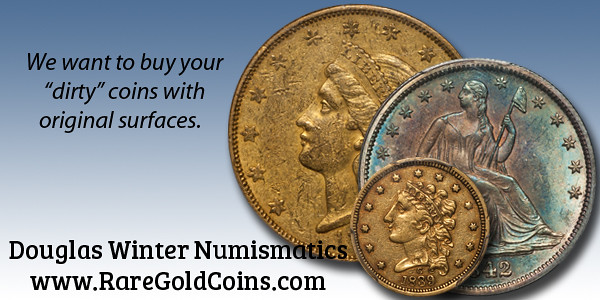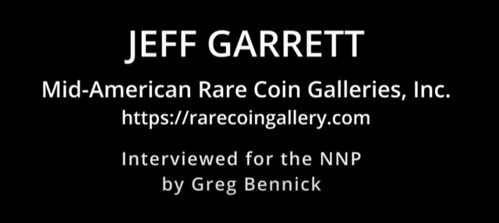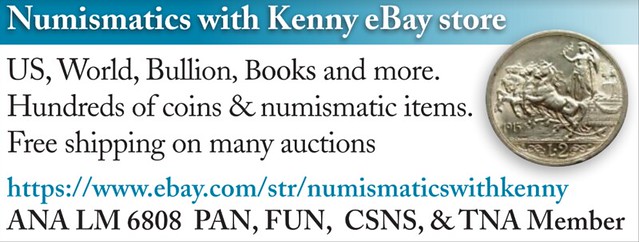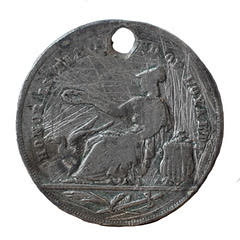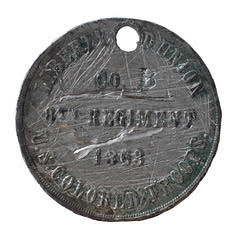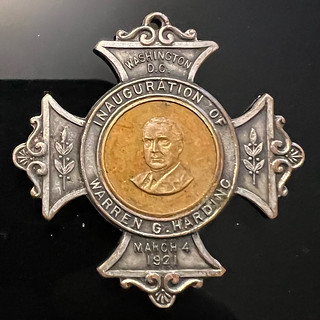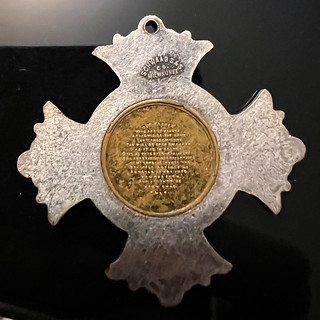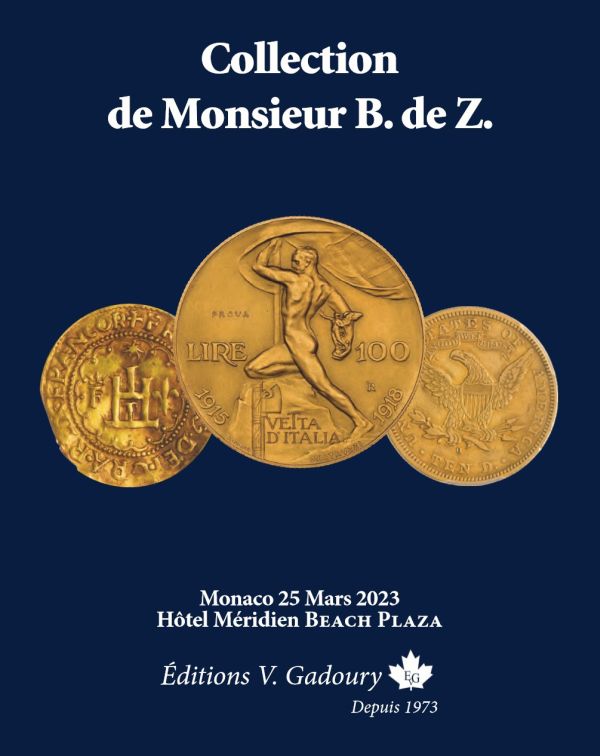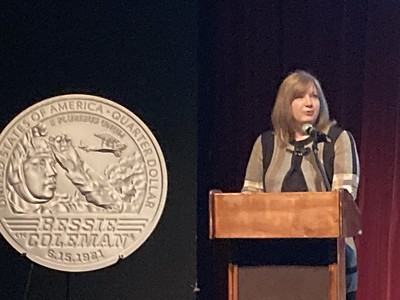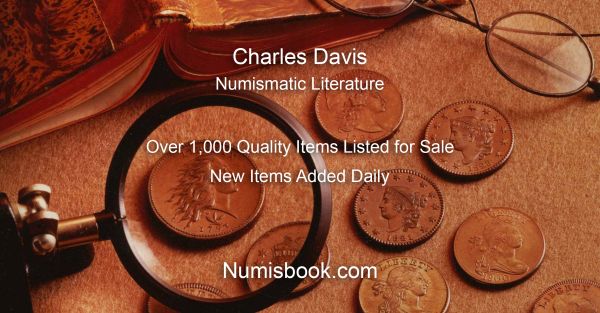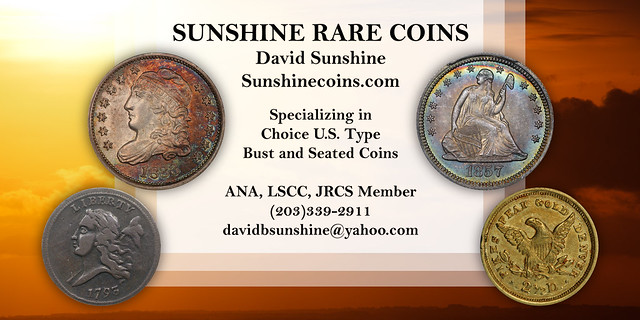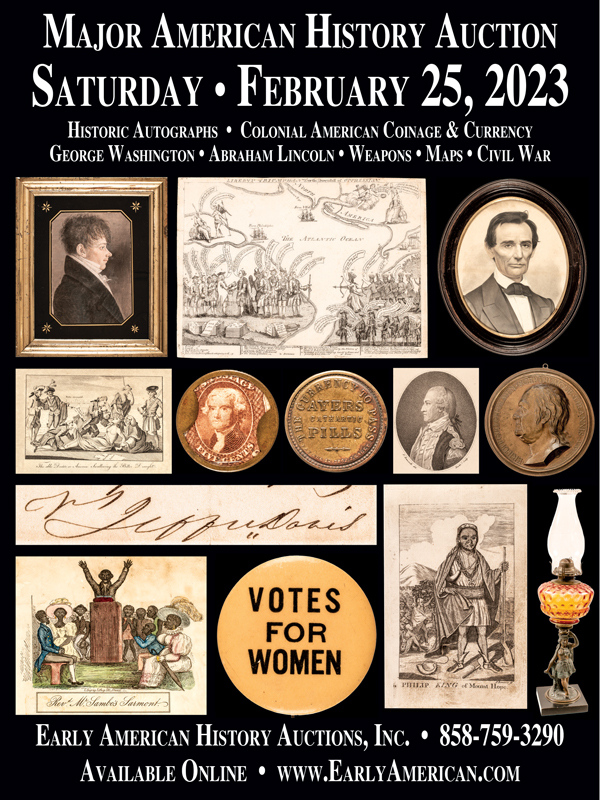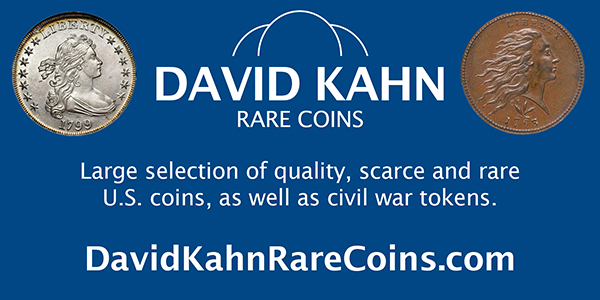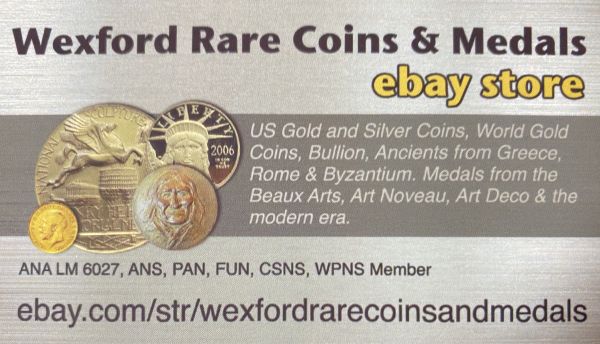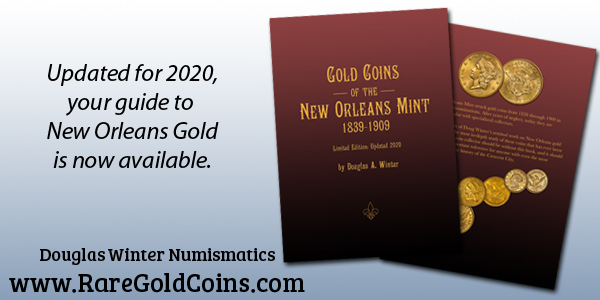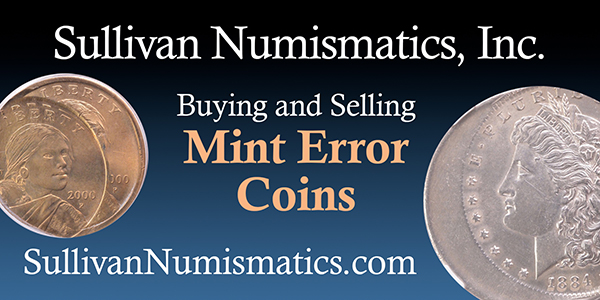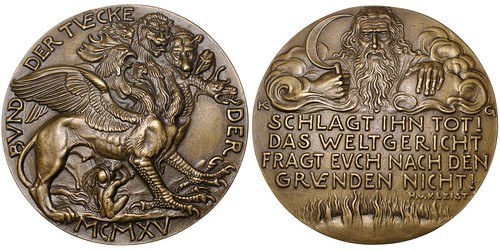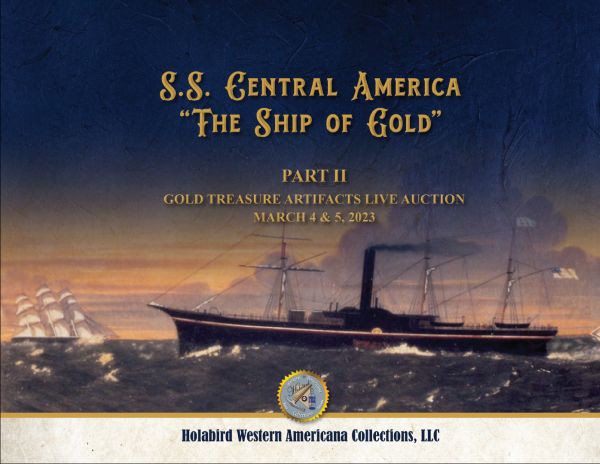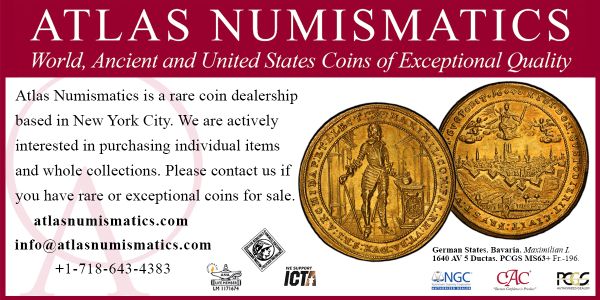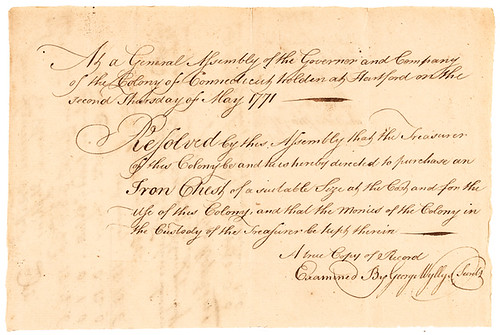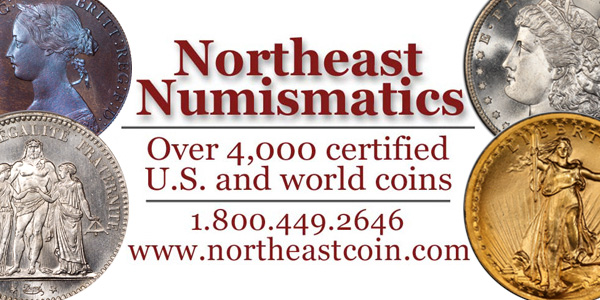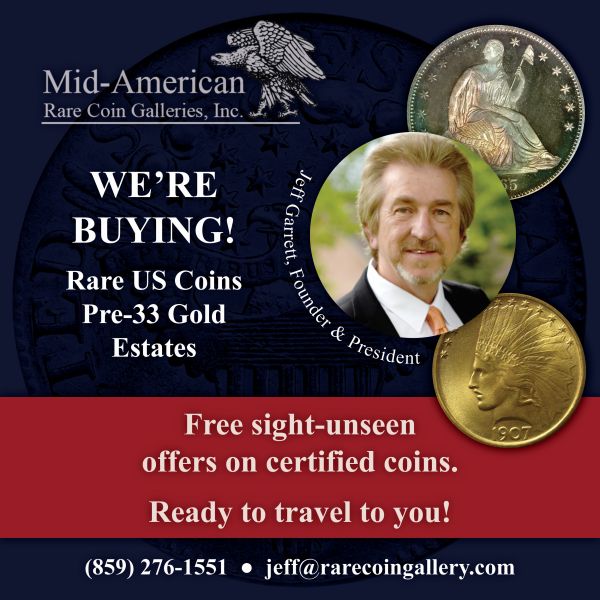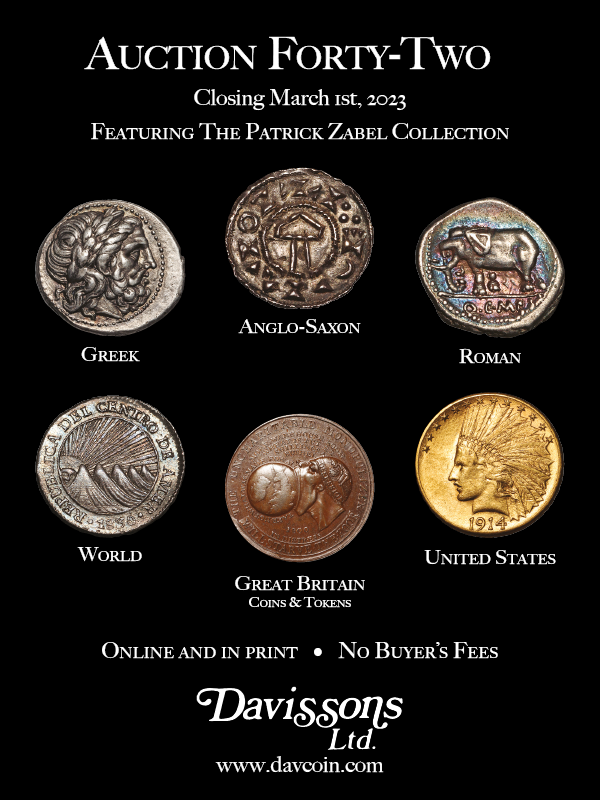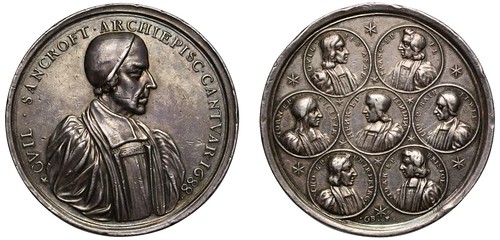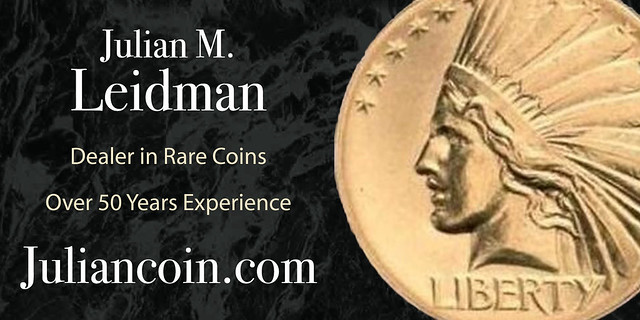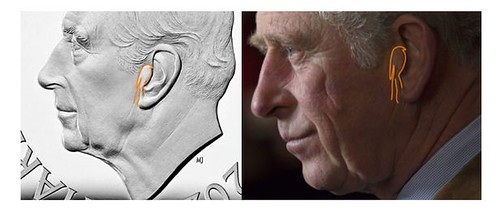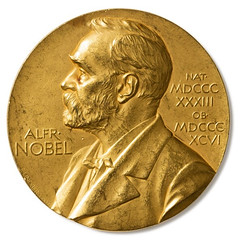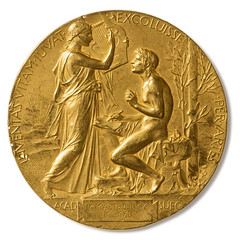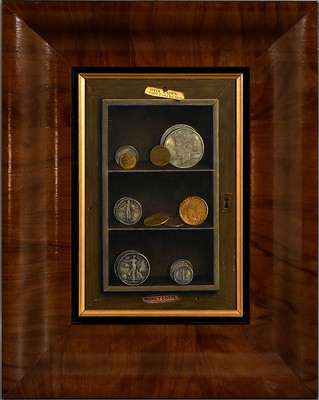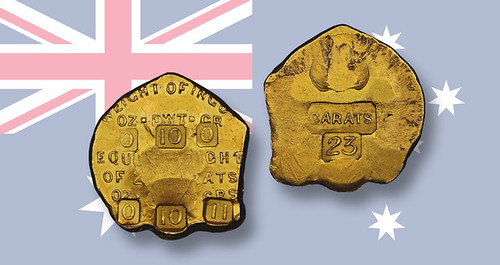
Visit our NBS Sponsors




About UsThe Numismatic Bibliomania Society is a non-profit association devoted to the study and enjoyment of numismatic literature. For more information please see our web site at coinbooks.org SubscriptionsThose wishing to become new E-Sylum subscribers (or wishing to Unsubscribe) can go to the following web page link MembershipThere is a membership application available on the web site Membership Application To join, print the application and return it with your check to the address printed on the application. Print/Digital membership is $40 to addresses in the U.S., and $60 elsewhere. A digital-only membership is available for $25. For those without web access, write to: Charles Heck, Treasurer AsylumFor Asylum mailing address changes and other membership questions, contact Chuck at this email address: treasurer@coinbooks.org SubmissionsTo submit items for publication in The E-Sylum, write to the Editor at this address: whomren@gmail.com BUY THE BOOK BEFORE THE COINSale Calendar
Watch here for updates! |
- WAYNE'S WORDS: THE E-SYLUM FEBRUARY 19, 2023
- MORE KOLBE & FANNING SALE 166 HIGHLIGHTS
- KAY EDGERTON LENKER (1922-2023)
- GEORGE WASHINGTON TRIBUTES
- 1928 ROBBINS COMPANY CATALOG DIGITIZED
- VIDEO: 1986 LONG BEACH EXPO
- JEFF GARRETT INTERVIEW, PART TWO
- QUERY: 1863 U.S.COLORED TROOPS MEDAL
- NOTES FROM E-SYLUM READERS: FEBRUARY 19, 2023
- BESSIE COLEMAN QUARTER LAUNCH CEREMONY
- ANA EXTENDS SUMMER SEMINAR DEADLINE
- ANA FOUNDER DR. GEORGE HEATH
- VOCABULARY TERM: MINTMARK
- AN ESSAY ON COIN BAGS
- GOLD BAGS THROUGH HISTORY
- AUGUSTINE SHURTLEFF : ABOUT CENTS
- THE JAMES ALLAIRE MILLHOLLAND COLLECTION
- JAMES ALLAIRE MILLHOLLAND (1842 - 1911)
- NUMISMAGRAM MEDAL SELECTIONS: MARCH 2023
- WORLD BANKNOTE AUCTIONS SALE 39 HIGHLIGHTS
- EARLY AMERICAN FEBRUARY 2023 SALE SELECTIONS
- ARCHIVES INTERNATIONAL AUCTION 83
- DAVISSONS AUCTION 42 ANCIENTS
- KUENKER SPRING 2023 AUCTION SALES 382-384
- NUMISMATIC NUGGETS: FEBRUARY 19, 2023
- ECUADOR – RECENT UNOFFICIAL ISSUES
- 'HIDDEN IMAGE' IN NEW KING CHARLES COINS
- TALKING TOKENS AT THE 2023 NYINC
- NOBEL PRIZE GOLD MEDAL FOR LITERATURE
- OTIS KAYE'S COIN COLLECTION
- LOOSE CHANGE: FEBRUARY 19, 2023
Click here to read the thin version on the web
Click here to subscribe
Click here to access the complete archive
To comment or submit articles, reply to whomren@gmail.com
Content presented in The E-Sylum is not necessarily researched or independently fact-checked, and views expressed do not necessarily represent those of the Numismatic Bibliomania Society.
WAYNE'S WORDS: THE E-SYLUM FEBRUARY 19, 2023
 New subscribers this week include:
Eric Vickers. Welcome aboard!
New subscribers this week include:
Eric Vickers. Welcome aboard!
Thank you for reading The E-Sylum. If you enjoy it, please send me the email addresses of friends you think may enjoy it as well and I'll send them a subscription. Contact me at whomren@gmail.com anytime regarding your subscription, or questions, comments or suggestions about our content.
This week we open with numismatic literature sale highlights, the loss of a centenarian numismatist, updates from the Newman Numismatic Portal, a U.S. Colored Troops medal, and more.
Other topics this week include the Bessie Coleman quarter launch, the ANA Summer Seminar and founder George Heath, mintmarks, coin bags, James Allaire Millholland, fixed price and auction previews, a hidden coin image, a Nobel Prize medal, and Otis Kaye's coin collection.
To learn more about Attinelli's Numisgraphics, Washington medals, the Robbins company, Steve Ivy, Jeff Garrett, Augustine Shurtleff, Robert Lovett Jr., and a 160-year-old mystery, the Murdoch Mysteries, the Pact of Malice medal, Church Money, White the Hatter, Egyptian Hair Coloring, Adelaide Assay Office gold ingots, ligatures, control marks, and points secrets, read on. Have a great week, everyone!
Wayne Homren
Editor, The E-Sylum
MORE KOLBE & FANNING SALE 166 HIGHLIGHTS
Here are more highlights from the February 25, 2023 sale from numismatic literature sellers Kolbe & Fanning. Some great material in this sale - be sure to get your bids in. -Editor
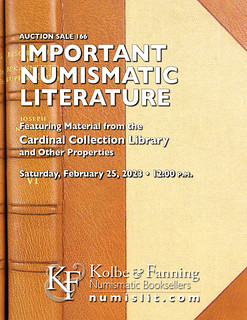 Highlights from February 25 Sale
Highlights from February 25 Sale
On Saturday, February 25, Kolbe & Fanning Numismatic Booksellers will be holding our next auction of rare and out-of-print numismatic literature. The sale features a wide variety of desirable works on coins, medals, and paper money from all times and places, plus a special selection of items from the archives of the illustrious French engraver Augustin Dupré, whose works include the famous Libertas Americana medal, the new decimal coinage following the French Revolution, the Diplomatic Medal, and the Comitia Americana medals for Nathanael Greene, John Paul Jones and Daniel Morgan.
Some highlights of the sale include:
KAY EDGERTON LENKER (1922-2023)
Ken Berger writes:
"Kay Lenker passed away on Feb. 12 peacefully after contracting pneumonia."
So sorry to hear that news. Kay was a fixture at ANA conventions for years. She recently celebrated her 100th birthday. On that occasion Pete Smith submitted a nice article about her - here's an excerpt. -Editor
Catharine R. Fean was born in Philadelphia on November 29, 1922. Her father was a mail carrier, Albin J. Fean, and her mother was also named Catharine R. (1898-1989). She received a B.A. from Immaculata in 1944 and an M.A, from San Diego State University in 1976.
Kay was certified as a meteorologist in 1945 and served on active duty in the U. S. Navy from 1944 to 1954. She retired from the Navy Reserves with the rank of Captain. She then worked with the United States Weather Bureau from 1955 to 1958 and with the Scripps Institute of Oceanography 1958 to 1978. She continued working as a consulting meteorologist 1978 to 1981.
GEORGE WASHINGTON TRIBUTES
For this President's Day weekend, Newman Numismatic Portal Project Coordinator Len Augsburger discusses George Washington numismatic literature. -Editor
George Washington Tributes
1928 ROBBINS COMPANY CATALOG DIGITIZED
Last month Scott Miller reported that he was in possession of a 1928 catalogue from the Robbins Company, a longtime maker of medals, trophies and related struck metal products, Scott kindly lent it for digitization by the Newman Numismatic Portal; it was recently scanned at the American Numismatic Society in New York. -Editor
VIDEO: 1986 LONG BEACH EXPO
The David Lisot Video Library on the Newman Numismatic Portal can be found at:
https://nnp.wustl.edu/library/multimediadetail/522852
We highlight one of his videos each week in The E-Sylum. Here's an episode of David's "Collector Talk" show, where he visits the 1986 Long Beach Expo. -Editor
JEFF GARRETT INTERVIEW, PART TWO
Here's part two of Greg Bennick's interview with dealer and Redbook Editor Jeff Garrett, where the topic turns to pricing. -Editor
Greg Bennick: It's funny you mentioned the 100 Greatest. I actually bought the fifth edition
last night, and the reason was yesterday, in anticipation of the interview, I was reading the
copy I've had for years and years and I was looking at it, I was like oh, the 1913 Liberty
nickel, I gotta ask him about the 1913 Liberty nickel. And then in the first edition, it says
only the location of only four of these is known. I'm like, it's probably time for me to get an
updated edition, so I bought the fifth last night. I was going to ask about valuations because
there's so many different factors I assume that go into valuation. Meaning if someone came
to me in five minutes with an 1804 dollar and said, What's it worth? Is it worth $50,000?
I'd say well it's worth a lot more than $50,000. But how do I know that? Meaning, I know
that because people have paid that, I know that because there's a collective agreement that it
is worth more, but what are the other factors that go into valuations? And then what about the
lesser coins, meaning some random Standing Liberty Quarter that isn't a key date? How are
valuations defined for an entire realm of numismatics? It just boggles the mind to think
about.
QUERY: 1863 U.S.COLORED TROOPS MEDAL
Matthew Robinson submitted this request for information about a rare medal made for the U.S. Colored Troops in 1863. Can anyone help? -Editor
WHAT'S ITS STORY ?
THE BOOK BAZARRE
Bowers Serieswas written by award-winning author Joshua McMorrow-Hernandez, who presents these silver coins to both collectors and investors. 384 pages. Order your copy online at Whitman.com , or call 1-800-546-2995.
NOTES FROM E-SYLUM READERS: FEBRUARY 19, 2023
Query: Warren Harding Inaugural Medal
Website visitor
Krzysztof writes:
"I would like to know something about the history of this and the value."
Well, it's clearly associated with the inauguration of President Warren Harding in 1921. The hole at the top indicates it was meant to be worn by attendees and supporters of the President. The outer frame has the imprint of Schwaab token and medal company of Milwaukee. I'm unfamiliar with these or their value. Can anyone help? -Editor
To read earlier E-Sylum articles, see:
MEDAL & TOKEN MAKER SCHWAAB OF MILWAUKEE
(https://www.coinbooks.org/esylum_v17n13a17.html)
MORE ON THE SCHWAAB COMPANY OF MILWAUKEE
(https://www.coinbooks.org/esylum_v17n15a22.html)
NEW BOOK: SCHWAAB STAMP & SEAL OBSOLETE DIES
(https://www.coinbooks.org/v25/esylum_v25n41a03.html)
Other topics this week include the Murdoch Mysteries Coins. -Editor
BESSIE COLEMAN QUARTER LAUNCH CEREMONY
John Riley submitted this report from the Bessie Coleman quarter launch ceremony. Thank you! -Editor
On Saturday, February 18, 2023, several members of the Chicago Coin Club attended the formal unveiling
ceremony of the Bessie Coleman reverse in the series of American Women quarter dollars. The U.S. Mint shared the dias with the DuSable Black History and Education Center staff in Chicago's Hyde Park neighborhood and the public was welcomed. The DuSable museum is a Smithsonian associate organization.
As described in the Mint's promotional literature, Bessie Coleman was an aviator, advocate, and pioneer who flew to great heights as the first African American and the first Native American woman pilot, as well as the first African American to earn an international pilot's license.
ANA EXTENDS SUMMER SEMINAR DEADLINE
The deadline for registering for one of the greatest numismatic events of the year has been extended, and not only that, full and partial scholarships are available. -Editor
Apply for an American Numismatic Association SUMMER SEMINAR scholarship! Application deadlines have been extended to February 28. Summer Seminar, June 17-22 & June 24-29, offers collectors of all ages and interests a varied selection of weeklong courses designed for discovery or continued study from instructors who are recognized leaders in their fields. Enjoy seminars and lectures, special events, great food, and optional tours. Full and partial scholarships are available. Visit money.org/summer-seminar for more information.
ANA FOUNDER DR. GEORGE HEATH
Today The Monroe News of Monroe, MI published an article about Dr. George Heath, founder of the American Numismatic Association. Here's an excerpt - see the complete article online. -Editor
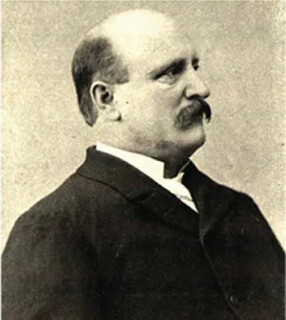 Coin collectors across the U.S. who belong to the American Numismatic Association (ANA) may already be familiar with the role that Dr. George F. Heath has played in the history of coin collecting in America. What they may not be as familiar with are his background as a well-known physician and medical pioneer in Monroe as well as its four-time mayor (1890, 1896, 1897 and 1906).
Coin collectors across the U.S. who belong to the American Numismatic Association (ANA) may already be familiar with the role that Dr. George F. Heath has played in the history of coin collecting in America. What they may not be as familiar with are his background as a well-known physician and medical pioneer in Monroe as well as its four-time mayor (1890, 1896, 1897 and 1906).
Heath was born in Warsaw, New York, on Sept. 20, 1850. He married Lucy May Rayhill from St. Clair County, Illinois, on Dec. 25, 1876. The couple had three children – Donald born in 1886, Helen and Charles (born in 1888 and died shortly after birth).
Heath graduated with honors from the University of Michigan Medical School in 1881. He became one of the few new graduates to be appointed a resident physician at the U-M Hospitals. After working for several years in Ann Arbor, Heath moved to Monroe and set up his medical practice on East Front Street in Monroe in 1884. The family settled into their new life in Monroe, and Heath began to lead an active civic life – leading to his first election as mayor of Monroe in 1890.
VOCABULARY TERM: MINTMARK
Here's another entry from Dick Johnson's Encyclopedia of Coin and Medal Terminology. -Editor
Mintmark. A single letter, several letters, monogram or symbol indicating the mint where a coin or medal was made. Location of a mintmark, like that of the artist's signature, is often inconspicuous, but most often found in the lower portion of the design. Some larger items, like medals, have mintmarks on the edge. For coins, the original intent of mintmarking was to indicate responsibility, to identify the maker, infrequently along with the mintmaster's mark, in case the coin was inferior. For numismatists, mintmarks are of extreme importance for attribution. While most mints are called by the name of the city where they are located, it must be remembered it is the plant or mint (or formerly, the workshop) that makes the coins or medals. With some exceptions – like the Zecca Mint in Rome – mints do not have names; they are known by this city name.
AN ESSAY ON COIN BAGS
Following up on an article in last week's issue, E-Sylum Feature Writer and American Numismatic Biographies author Pete Smith submitted this article on coin bags. Thanks! -Editor
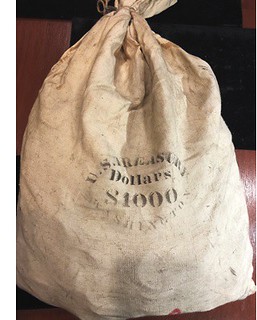 During the period of 2003 to 2006, I worked for a rare coin dealer who was affiliated with a bullions dealer I will call Minneapolis Gold and Silver (MGS). I could report extensively on the bullion business but I will limit my comments to discussion of coin bags.
During the period of 2003 to 2006, I worked for a rare coin dealer who was affiliated with a bullions dealer I will call Minneapolis Gold and Silver (MGS). I could report extensively on the bullion business but I will limit my comments to discussion of coin bags.
The bullion side did not deal with the general public. The owner did not want to do business with anyone he had not known for thirty years. One of the clients drove around to smaller local dealers to buy up 90% silver coins and other bullion products. Another client was a hotel buyer and convicted felon who had served prison time for racketeering. Our boss was happy to buy his bullion.
These clients and others would bring in junk silver
in canvas coin bags. The company had one major customer in the telemarketing business. MGS would take silver out of the used bags and repackage it in new bags marked with the name of our client. The used bags were thrown in a large cardboard box in the garage. Sellers could take used bags to go out and buy more silver.
GOLD BAGS THROUGH HISTORY
The S.S. Central America second artifacts sale catalog includes a number of great articles. With permission we're republishing Fred Holabird's piece on "Gold Bags or Pokes Through History". Thank you! -Editor
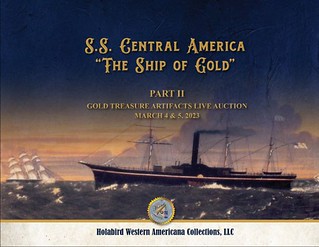 Leather (hide), and cloth bags have been used for gold storage for at least four centuries. Originally hand
made and stitched along edges of deer or other available animal hide, the bags served a very specific
purpose: to hold an article of very great density, particularly gold, in a manner that would not tear open
and spill the contents if dropped. While cloth was an automatic resource, it was not as practical. Thin
cloth splits open easily with weighty contents. Coarse weave cloth (canvas and sail cloth) can lose the
contents of fine gold dust easily, working its way out through the stitch spaces. Likewise, poor stitching
can also cause a quick break in the bag, causing loss of valuable gold contents. For these reasons and
more, animal hide was deemed the best material.
Leather (hide), and cloth bags have been used for gold storage for at least four centuries. Originally hand
made and stitched along edges of deer or other available animal hide, the bags served a very specific
purpose: to hold an article of very great density, particularly gold, in a manner that would not tear open
and spill the contents if dropped. While cloth was an automatic resource, it was not as practical. Thin
cloth splits open easily with weighty contents. Coarse weave cloth (canvas and sail cloth) can lose the
contents of fine gold dust easily, working its way out through the stitch spaces. Likewise, poor stitching
can also cause a quick break in the bag, causing loss of valuable gold contents. For these reasons and
more, animal hide was deemed the best material.
Captain Kidd and his Gold Bags
The gold dust bag goes hand in hand with the history of treasure boxes through history. The earliest
mention located on gold dust in bags comes from America itself and the story of Captain William Kidd.
Kidd was hired in 1696 as a truthful and honest
sailing man by private parties in America and England
in cooperation with English authorities to stop piracy at sea and prosecute them. He sailed from England
in April, 1696 for New York. Instead of an immediate voyage across the Atlantic, he sailed around the
Cape of Good Hope, was gone about three years at sea as he got off course
and began plundering
ships. It is not known fully if he was plundering pirates, or simply became one himself. Nonetheless, he
returned to New York at Long Island and proceeded to Gardiner's Bay and Gardiner's Island, where he
buried treasure, and left a note with Gardiner himself of the exact location, before leaving to bury other
treasure elsewhere, entrusting Mr. Gardiner with his secret, and making the life of the latter the pledge
of his fidelity.
Kidd burned his ship after a time and released his crew. He went to Boston in 1699
thinking no one knew of his plunders, but was wrong, and was immediately arrested by the order of
Governor Bellamont. Bellamont's men soon sought out the various treasures, found Gardiner, and as
soon as assured that Kidd was in confinement,
Gardiner then divulged the location of the treasure. The
papers of the Gardiner family show that the contents of the box were bags of gold dust, bags of gold
bars,...
... Kidd was sent to England, tried and condemned.... He was executed May 9, 1701.
AUGUSTINE SHURTLEFF : ABOUT CENTS
An American Numismatic Society Pocket Change blog article by librarian David Hill highlights the writing of early numismatist Augustine Shurtleff. -Editor
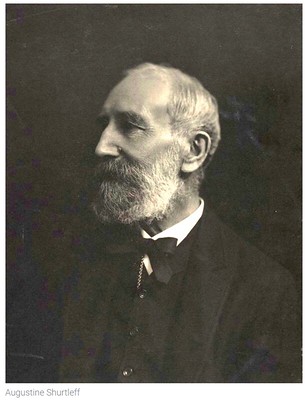 From time to time here at the ANS Library we still get books and other numismatic items from the library of Gordon Frost, a warmly remembered friend of the Society who passed away over 10 years ago. Frost was a devoted collector of numismatic literature, and when he died in 2011, his basement library in Queens was overflowing with it. Thanks to Frost's wife, Rosalie, and the persistent efforts of ANS fellows Normand Pepin and Scott Miller, we have been the recipient of all kinds of interesting items from Frost's collection over the years.
From time to time here at the ANS Library we still get books and other numismatic items from the library of Gordon Frost, a warmly remembered friend of the Society who passed away over 10 years ago. Frost was a devoted collector of numismatic literature, and when he died in 2011, his basement library in Queens was overflowing with it. Thanks to Frost's wife, Rosalie, and the persistent efforts of ANS fellows Normand Pepin and Scott Miller, we have been the recipient of all kinds of interesting items from Frost's collection over the years.
Recently, I was looking through some of the odds and ends that Scott had brought in, and a couple of old newspapers in particular caught my eye. Though they were published nearly 30 years apart, both carry at least a portion of the same column—basically a list and description of varieties of US cents beginning with the first in 1793. The Mohawk Standard of Delta, N.Y. (April 1886) ran it under the title, History of U.S. Cents.
The Luzerne Union of Wilkes-Barre, Pennsylvania (August 24, 1859), stuck with the original title: About Cents.
In both cases the column is signed A. S.,
and, if you're like me, you might see those initials and the year 1859 and think, Augustus Sage.
But you would be wrong. As discussed a few years ago in the E-Sylum, the writer was Augustine Shurtleff (1826–1901), a Massachusetts physician who helped found the Boston Numismatic Society in 1860. He was a collector of at least some Greek and Roman pieces, as well as American tokens, medals, and coins—these being among the coins in his bequest to the Museum of Fine Arts in Boston. In 1863, nearly 40 years before he died, some of his collection was sold by W. Elliot Woodward.
THE JAMES ALLAIRE MILLHOLLAND COLLECTION
Vicken Yegparian penned a great article about the recent discovery of an intact nineteenth-century American coin collector's cabinet, nowadays the equivalent of opening King Tut's tomb. With permission, we're republishing it here. Thank you - fascinating story! -Editor
James Allaire Millholland, 1842-1911
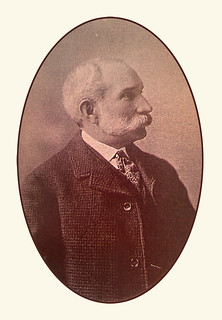 Over 170 years of active
trading in the numismatic
hobby has dispersed most
all collections built in the
early days of American
numismatics. But last
summer, a once in a lifetime
opportunity presented itself: an
amazing collection of U.S. coins
built wholly in the 19th century and
unseen by numismatists until last year. To use the term
Over 170 years of active
trading in the numismatic
hobby has dispersed most
all collections built in the
early days of American
numismatics. But last
summer, a once in a lifetime
opportunity presented itself: an
amazing collection of U.S. coins
built wholly in the 19th century and
unseen by numismatists until last year. To use the term
fresh to the market
would be a gross understatement.
As numismatists, we at Stack's Bowers Galleries are often interested in the history of a collection, especially how it evolved into the finished product that graces the pages of our auction catalogs. Sometimes that history is rich, such as with the famed Garrett and Eliasberg collections, carrying so much associated information behind them that entire books have been written about these American cabinets.
JAMES ALLAIRE MILLHOLLAND (1842 - 1911)
Here's his family's biography of James Allaire Millholland, also republished with permission from Stack's Bowers Galleries. Thank again. An amazing and full life, well lived. -Editor
1842 - 1911
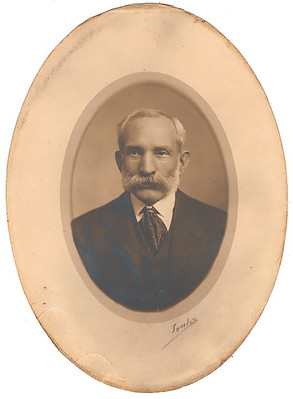 Born to a heritage of railroad and marine innovation, James Allaire Millholland actively
participated in the industrial explosion of the
nineteenth century in western Maryland. His
career flourished in railroads, first in building
ever more efficient locomotives and then as a
railroad executive.
Born to a heritage of railroad and marine innovation, James Allaire Millholland actively
participated in the industrial explosion of the
nineteenth century in western Maryland. His
career flourished in railroads, first in building
ever more efficient locomotives and then as a
railroad executive.
His father, James Millholland (1812-1875), was one of the foremost railway master mechanics in the country. In 1829, as an apprentice to a prominent machinist in the B & O Railroad's shops in Reading, Pennsylvania, he helped build (supposedly of spare parts) the first light steam locomotive, the Tom Thumb, to a design of Peter Cooper's. (In the competition between this little engine and a horse pulled car, a belt slipping from a pulley resulted in victory for the horse-powered car.) Millholland, Sr. went on to design innovative locomotives, reconfigure designs, and experiment with ways to improve their propulsion.
NUMISMAGRAM MEDAL SELECTIONS: MARCH 2023
Numismagram's Jeremy Bostwick sent along these four highlights from his recent upload of new material to his website. In addition to the medals below, look for an enchantingly toned French jeton featuring mermaids, a love token on a Seated Liberty dime that is seemingly a San Francisco treat, a medal celebrating the José de San Martín monument in Washington, D.C., and many other delights. For all of the new items, please visit https://www.numismagram.com/inventory. -Editor
WORLD BANKNOTE AUCTIONS SALE 39 HIGHLIGHTS
Here are some highlights of the upcoming World Banknote Auctions Auction 39. -Editor
World Currency Sale 39 Session 1
Live bidding on
Thursday, February 23, 2023 at 10:00 AM PST
World Currency Sale 39 Session 2 (Timed)
Bidding ends on
Sunday, February 26, 2023 at 3:00 PM PST
EARLY AMERICAN FEBRUARY 2023 SALE SELECTIONS
Here are some lots that caught my eye in the February 25, 2023 Early American History Auctions sale. -Editor
ARCHIVES INTERNATIONAL AUCTION 83
Here is the announcement for the February 28, 2023 sale by Archives International Auctions. -Editor
ARCHIVES INTERNATIONAL AUCTIONS OFFERS HISTORIC U.S., CHINESE & WORLD BANKNOTE COLLECTION ON FEBRUARY 28, 2023.
The auction will be held by Archives International Auctions at their offices in River Edge, N.J.
DAVISSONS AUCTION 42 ANCIENTS
In an email to customers last week, Davissons Ltd. previewed ancient coins in their upcoming March 1st 2023 Auction 42. -Editor
Our Greek and Roman offerings are anchored by the Patrick Zabel collection, alongside several exceptional consignments, many of which were acquired by the consignors 20 years ago or more. In the Greek section take note of small but beautiful groups of Punic-related issues, Larissa, Sicily, Athens (plus imitative issues), and others.
The Roman section includes a diverse offering of Roman Republican coinage, along with Roman Imperial pieces chosen for their rarity, fine style, and exceptional condition. We have had the opportunity to choose the finest pieces from several carefully assembled collections, and they are on offer here.
KUENKER SPRING 2023 AUCTION SALES 382-384
Here's the first part of a press release for Künker's Spring Auctions, covering sales 382-384. -Editor
Eleven Special Collections at Künker's Spring Auction Sales
As many as eleven special collections will be sold by Künker from 16 to 24 March 2023, including ancient and modern gold coins from the Wolf Collection, denarii of the Roman Republic from the Bauss Collection, Salzburg coins and medals from the Schedel Collection, bracteates from the Fleige Collection, Mainz coins from the Memmesheimer and Beaury Collections, and many more.
NUMISMATIC NUGGETS: FEBRUARY 19, 2023
Here's a selection of interesting or unusual items I came across in the marketplace this week. Tell us what you think of some of these. -Editor
Archbishop William Sancroft (1617-1693) and the Seven Bishops, 1688, struck silver medal by George Bower, bust of Sancroft right, wearing a cap and clerically robed, GVIL. SANCROFT ARCHIEPISC CANTVAR 1688, rev. medallic portraits and the names of the Bishop of London and the six other imprisoned bishops, edge: SI FRACTUS ILLABATUR ORBIS IMPAUIDOS FERIENT RUIN Æ, 50mm (Eimer 288a; MI i 622/37). Good very fine, rare.
The Bishops depicted on the medal's reverse are Henry Compton [London] shown in the centre, and from the top right clockwise, Francis Turner [Ely], Thomas Ken [Bath], John Trelawney [Bristol], Thomas White [Peterborough], John Lake [Chichester] and William Lloyd [St Asaph].
A busy but pleasant design, managing to pull off eight different portraits on a single medal. From the online offerings of Sovereign Rarities. -Editor
To read the complete item description, see:
Achbishop Sancroft and the Seven Bishops, 1688.
(https://www.sovr.co.uk/products/achbishop-sancroft-and-the-seven-bishops-1688-hm29250)
Other topics this week include a 1784 George III Gold Guinea, an off-center Guatemala Peso and an Egyptian Hair Coloring advertising note. -Editor
THE BOOK BAZARRE
ECUADOR – RECENT UNOFFICIAL ISSUES
Dale Seppa submitted the following mini-catalog of new Ecuador fantasy issues. Thanks. -Editor
ECUADOR – Recent Unofficial Issues
The issues listed below have recently been released. This is apparently a new commercial series. As shown below the obverse (tails) is the same for all of the issues. There are two versions; the 38 mm. silver color and the 26 mm. bi-metallic issue. Seemingly the complete series will be the exotic animals of Ecuador and based on the ten different that I have been able to secure they are being issued in alphabetical order.
'HIDDEN IMAGE' IN NEW KING CHARLES COINS
Has Charles got a little birdie in his ear? Some think there's a 'hidden image' in the new King Charles coins. -Editor
For years, coins have featured a number of hidden images, much to the delight of those who love to search for them.
In good news for collectors, another surprise is on the way. The experts at Britannia CoiCompany, who buy and sell collectible coins, have spotted a hidden image in the new range of King Charles III coins being released to the UK.
On first glance, it is easy to miss the hidden design. But the pros believe 'you'll never un-see' the latest detail once it has been pointed out to you.
TALKING TOKENS AT THE 2023 NYINC
John Thomassen recently published an American Numismatic Society Pocket Change blog article on January's New York International Numismatic Convention. In it, he discusses two conversations at the show relating to tokens. Here's an excerpt - see the complete article online for more. -Editor
For over 10 years, I have attended the NYINC show every January without fail, with the lone exception of 2021, as there was no convention that year due to COVID-19. By attending this show, one really gets a sense for the strength of the numismatic market that year—how active buyers are, how dealers are faring, what material is hot and actively trading, and what inventory is sluggish and slow to move.
So how did this year's show fare? In short, the sense I got from dealers and buyers alike was that it was an all-around positive and successful convention, and more specifically, that the numismatic market remains strong, and in-person attendance is bouncing back. To be sure, the show was more bustling this year compared to the 2022 convention, at least from a visual assessment of the bourse floor on the days I was there (Friday, January 13 and Saturday, January 14) and the material on view at dealers' booths as well as in the auction rooms was plentiful and diverse, with offerings for many different budgets. A common thread was that finding enough coins of a certain caliber to present to buyers (at least at fixed prices) has remained difficult for dealers, owing to fewer large collections of high-quality material coming into the marketplace, but this has been the case for at least a few years now, and many buyers are well aware that certain types in particularly spectacular condition (rare or otherwise) are almost always destined for auctions first, although many hidden gems can still be found amongst dealer stock.
NOBEL PRIZE GOLD MEDAL FOR LITERATURE
An E-Sylum reader notified me of this Sotheby's offering of a gold Nobel Prize medal for Literature. Thank you. -Editor
[Maeterlinck, Mauritius]
Gold diploma and Nobel Prize in Literature medal.
December 10, 1911 .
Gold medal and hand-painted diploma, celebrating the Nobel Prize for Literature awarded to Maerterlinck in 1911.
The only Belgian Nobel Prize for Literature.
OTIS KAYE'S COIN COLLECTION
The Stack's Bowers Spring 2023 Auction Rarities Night features an important numismatic-themed work by "money artist" Otis Kaye. For more information, see Pete Smith's excellent biography of Kaye (linked below). -Editor
Undated (1930) "Otis Kaye's Coin Collection" Painting. By Otis Kaye (1885-1974). Oil on Panel.
Approximately 9.5 inches x 6.5 inches. Professionally re-framed in a modern wood frame reminiscent of the middle to late 19th century styles. This is the only difference in the piece between our offerings of this impressive little work in our (Stack's) May 2008 sale, and our March 2020 sale of the D. Brent Pogue Collection. We are pleased to offer it once again in the present sale, described as in our previous presentations with minor edits:
"Fourteen coins, accurately depicted, standing on edge or laying flat, on the three shelves of a time-worn wooden cabinet. Otis Kaye (1885-1974), was born in Nahma, Michigan. He produced relatively few paintings previous to 1929, but then suddenly became far more prolific. Kaye was one of the countless victims of the Great Stock Market Crash, losing his family's entire fortune consisting of over $150,000. He began painting pictures of money, and his paintings reflect Kaye's deep feelings of anger and loss. At a time when wealthy coin collectors were keeping their numismatic treasures in ornate, stained and varnished wooden 'cabinets,' Otis Kaye's 'Coin Collection' is shown residing in a battered wooden kitchen cabinet, protected by a lock that might easily be opened with a skeleton key. Most of the coins are well circulated, having been pulled from everyday pocket change. The name of Kaye's collection isn't set in gold leaf. Instead, the title has been typed on to a tattered scrap of paper, and thumb-tacked into place. Kaye's frustration is further echoed by the scrap of paper pasted to the bottom of the cabinet which states MONEY COSTS. In November of 1988, examples of Otis Kaye's work were on display at Berry-Hill Galleries, on East 70th Street in New York, alongside other trompe-l'oeil masterpieces by John Haberle and others, some of which were priced well over $1 million. Kaye's oil paintings were then being offered for up to $100,000. 'Otis Kaye's Coin Collection' is a wonderful example of a genre that is both whimsical, and compelling. Paintings of this caliber are rarely offered, making this is an opportunity that should not be missed."
LOOSE CHANGE: FEBRUARY 19, 2023
Here are some additional items in the media this week that may be of interest. -Editor
Jeff Starck of Coin World wrote an article on the rare Adelaide Assay Office gold ingots. -Editor
Adelaide Assay Office gold ingots are among the earliest of Australian numismatic items.
While the Government Assay Office of South Australia filled the need to process an influx of gold, this treatment proved impractical due to the varying weight and fineness of these ingots, coupled with a general lack of circulating standard currency.
Many challenges accompanied the Australian Gold Rush of the 1850s for both miners and the communities they would return to. After months away, droves of individuals would return to their respective towns, Adelaide included, with ample gold in tow.
A necessity to process this gold was immediately apparent, and, under the Bullion Act of the Province, the Government Assay Office of South Australia was authorized.
The Assay Office issued gold ingots, which were to be used to back bank notes circulated by local banks.
To read the complete article, see:
Adelaide Assay Office gold ingot sells for $540,000
(https://www.coinworld.com/news/world-coins/adelaide-assay-office-gold-ingot-sells-for-540-000)
Other topics this week include coins repatriated to Italy, and the Codex Sassoon. -Editor

